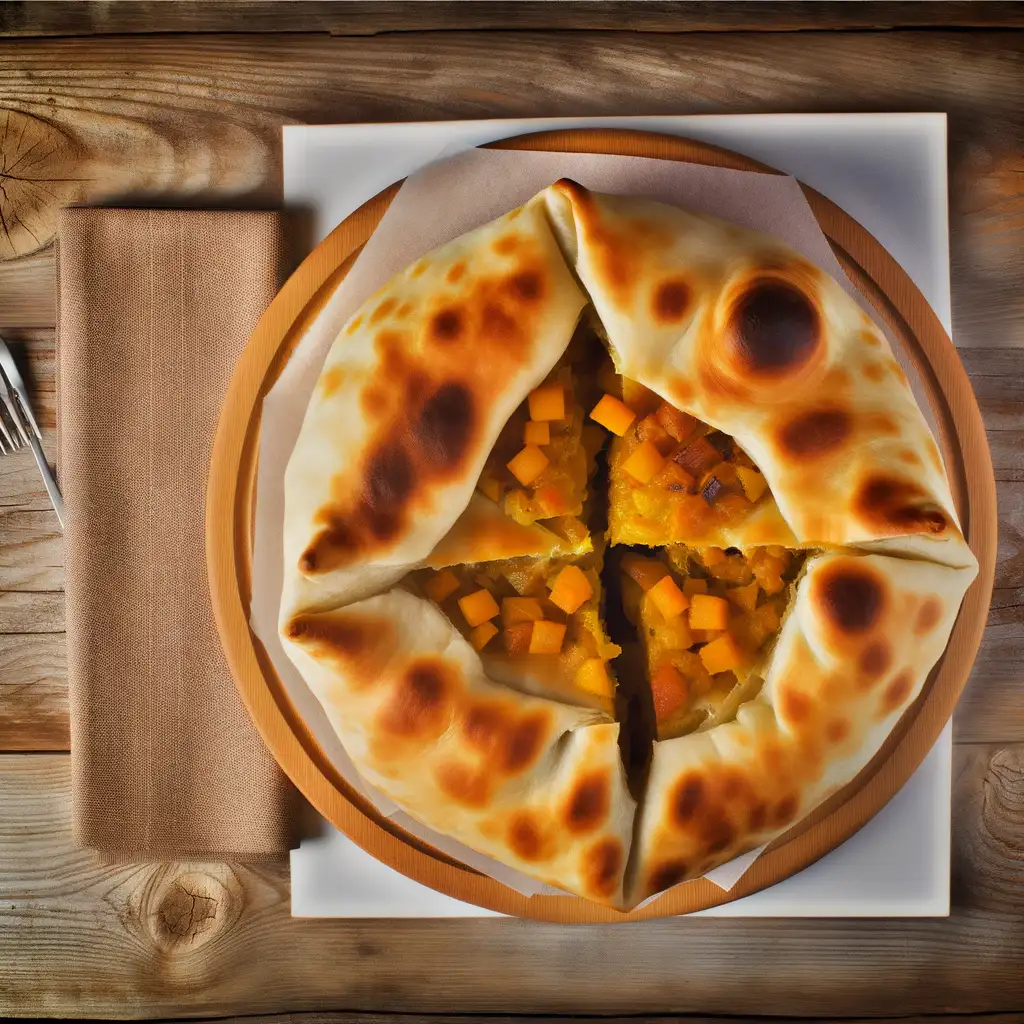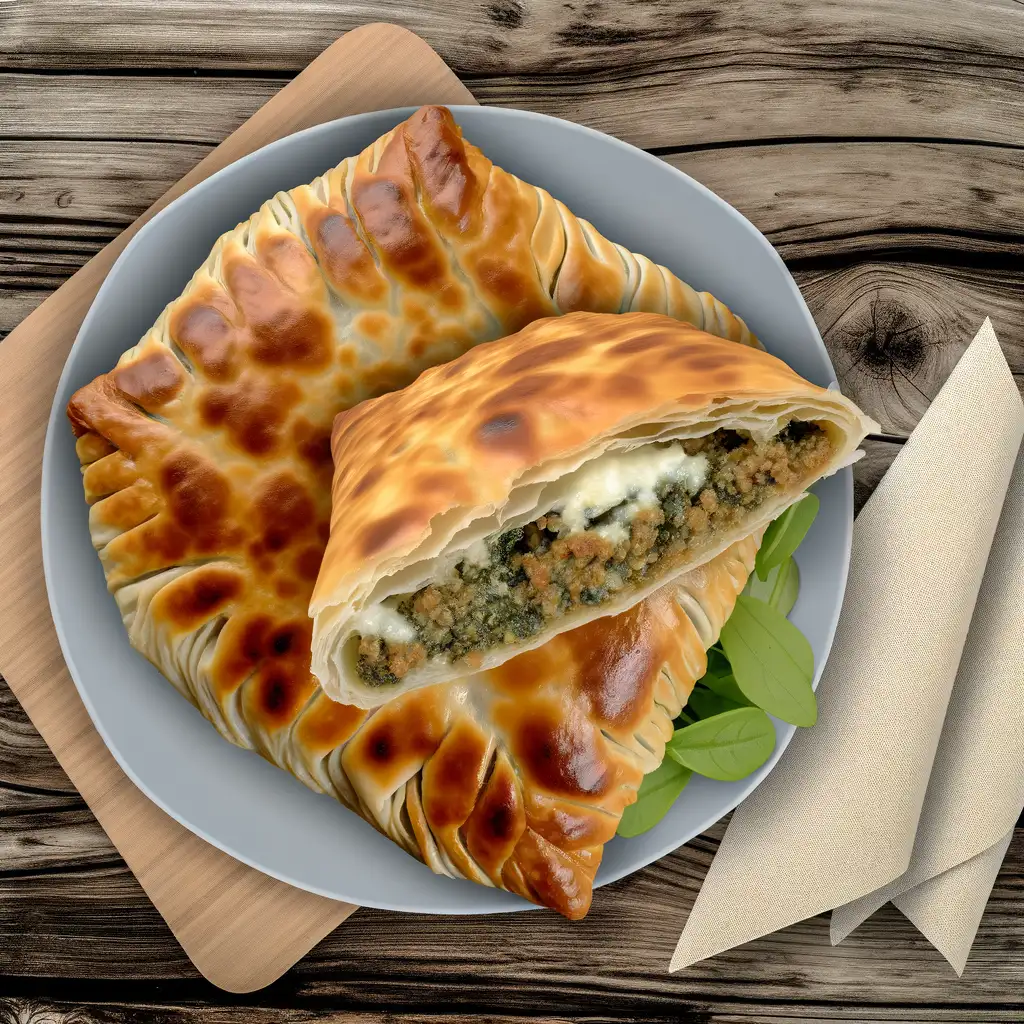



If you’re craving a breath of fresh mountain air and a pace that slows just enough to savor every moment,Žabljak in Montenegro is where you want to be. Nestled high in the Durmitor National Park,this small town feels like stepping into a postcard painted with rugged peaks,crystal-clear lakes,and dense pine forests. The vibe here is effortlessly chill but alive with the quiet hum of nature and the occasional laughter from cozy mountain cafés. Imagine waking up to the crisp scent of pine and the distant call of birds,then setting out on trails that wind through dramatic canyons and past shimmering glacial lakes. The town itself has this warm,welcoming character—simple wooden chalets,friendly locals who are always up for sharing a story or a homemade rakija,and a handful of rustic restaurants where you can taste hearty,authentic Montenegrin dishes. Think slow-cooked lamb,fresh trout from the nearby rivers,and earthy mushrooms picked from the forest floor. Evenings here are magical; the sky turns a deep indigo,stars spill out in every direction,and the air cools just enough to make a crackling fire irresistible. What really makes Žabljak stand out is how it balances adventure with tranquility. Whether you’re hiking the dramatic peaks,rafting down the Tara River,or simply sitting on a bench watching the sunset paint the mountains gold,there’s a deep sense of peace and connection to the wild that stays with you long after you leave. It’s a place that invites you to slow down,breathe deeply,and fall a little in love with the raw beauty of Montenegro.
The information on this page is currently being reviewed by Tripkliq and should be used as a guide only
Eng word: Hello
Eng pronunciation: Zdra-vo
Local language: Zdravo
Eng word: Goodbye
Eng pronunciation: Do-vee-jen-ya
Local language: Doviđenja
Eng word: Thank you
Eng pronunciation: Hvah-lah
Local language: Hvala
Eng word: How much
Eng pronunciation: Ko-lee-ko
Local language: Koliko
Eng word: Toilet
Eng pronunciation: Toh-ah-let
Local language: Toalet
Eng word: Help me
Eng pronunciation: Po-mo-zee mee
Local language: Pomozi mi
Eng word: Yes
Eng pronunciation: Dah
Local language: Da
Eng word: No
Eng pronunciation: Neh
Local language: Ne
Eng word: Excuse me
Eng pronunciation: Eez-vee-nee-teh
Local language: Izvinite
Žabljak holds the distinction of being the highest town in the Balkans, situated at an altitude of 1,456 meters above sea level. Its unique location makes it a popular destination for nature lovers and adventure seekers.
Žabljak is the gateway to Durmitor National Park, which was designated a UNESCO World Heritage Site in 1980. The park is renowned for its stunning glacial lakes, rugged peaks, and diverse flora and fauna.
The Black Lake, located near Žabljak, is one of the most iconic natural landmarks in Montenegro. It is surrounded by dense pine forests and offers breathtaking views of the Durmitor mountain range.
Žabljak has a rich history as a winter sports destination. Its ski resorts and snow-covered slopes attract visitors from around the world, making it a hub for skiing, snowboarding, and other winter activities.
During World War II,Žabljak played a significant role as a stronghold for the Yugoslav Partisans. The town's strategic location in the mountains made it an important base for resistance movements.
The Church of St. Preobraženje, located near Žabljak, is one of the oldest churches in the region. Built in the 19th century, it is a testament to the area's rich cultural and religious heritage.
Just a short distance from Žabljak lies the Tara River Canyon, the deepest canyon in Europe and the second deepest in the world. It is a must-visit for tourists seeking adventure and natural beauty.
Žabljak has a long-standing tradition of eco-tourism, with a focus on preserving its pristine natural environment. Visitors can enjoy sustainable tourism activities such as hiking, rafting, and wildlife observation.
Žabljak has been a center for mountain tourism since the early 20th century. Its picturesque landscapes and fresh mountain air have attracted visitors for over a century, making it a beloved destination for outdoor enthusiasts.
In Žabljak, the most common Power Adaptor is Type C, Type F.



Cabbage rolls stuffed with minced meat and rice, simmered in a savory tomato sauce, popular in the region.

A flaky pastry filled with various fillings such as pumpkin, cheese, or apples, often enjoyed as a dessert or snack.

A savory pastry filled with meat, cheese, or vegetables, wrapped in thin layers of dough and baked until golden brown.

A hearty dish made from cornmeal, potatoes, and cheese, often served as a side or main dish, especially in the mountainous regions.

Freshly caught trout from the nearby rivers, typically grilled and served with a side of seasonal vegetables.

A traditional smoked ham from the nearby Njeguši village, known for its rich flavor and served as an appetizer.
.webp)
Tender lamb cooked slowly under a metal bell, resulting in a flavorful and juicy dish, often accompanied by potatoes and vegetables.
If you ever find yourself wandering the Adriatic coast,Kotor is the kind of place that wraps around you like a warm,familiar hug. Nestled beneath towering limestone cliffs and cradled by the shimmering Bay of Kotor,this medieval town hums with a quiet energy that feels both timeless and alive. As you stroll through its labyrinth of narrow cobblestone streets,you’ll catch the scent of fresh sea salt mingling with the earthy aroma of old stone and blooming jasmine. The sound of church bells ringing softly blends with the distant chatter of locals and the gentle lapping of waves against ancient walls.
Kotor’s charm lies in its layers—each corner reveals a story,from the faded frescoes inside centuries-old churches to the vibrant markets where vendors call out,offering ripe figs,olives,and freshly caught seafood. The city’s Venetian architecture,with its weathered facades and ornate balconies,whispers tales of a rich past,while cozy cafes spill out onto sun-dappled squares,inviting you to sip strong Montenegrin coffee or a glass of local wine.
What really stays with you is the feeling of being somewhere that’s both peaceful and full of life. Whether you’re climbing the fortress walls for a breathtaking view of the bay or simply watching the sunset paint the water in shades of gold and pink,Kotor has a way of making you slow down and soak it all in. It’s a place that lingers in your heart long after you’ve left.
If you ever find yourself wandering through the sun-drenched streets of Dubrovnik,you’ll immediately feel like you’ve stepped into a living storybook. The city’s ancient stone walls rise proudly against the sparkling Adriatic,and as you stroll along the marble-paved Stradun,the salty sea breeze mingles with the scent of fresh pine and blooming bougainvillea. There’s a rhythm here—a gentle hum of life where history and modern charm dance together effortlessly.
Dubrovnik’s character is woven into every corner:the clatter of café cups,the murmur of locals chatting in cozy taverns,and the distant call of seagulls overhead. You can almost taste the city in the air—briny and fresh,with hints of grilled seafood and ripe figs from the markets. Sitting at a seaside restaurant,watching the sun dip behind the fortress walls,you’ll savor dishes bursting with Mediterranean flavors,paired with a glass of crisp Croatian white wine.
What makes Dubrovnik truly special is how it balances its rich past with a vibrant present. The city’s narrow alleys invite exploration,revealing tucked-away galleries,artisan shops,and lively squares where music spills out into the streets. Whether you’re tracing the footsteps of ancient mariners or simply soaking up the golden light on a quiet terrace,Dubrovnik feels like a warm embrace—inviting,timeless,and utterly unforgettable.
If you ever find yourself wandering the Adriatic coast,Budva is the kind of place that wraps around you like a warm,salty breeze. There’s this effortless charm in the air—ancient stone walls bathed in golden sunlight,narrow cobblestone streets humming with the chatter of locals and the clinking of glasses. As you stroll through the Old Town,you can almost taste the history in the air,mingling with the scent of fresh seafood grilling nearby and the faint hint of pine from the surrounding hills. It’s a place where the past and present dance together,from medieval fortresses overlooking turquoise waters to lively cafes spilling out onto sun-dappled squares.
What really sticks with you is the rhythm of life here. Mornings start slow,with the gentle lapping of waves against the shore and the distant call of fishermen setting out to sea. By afternoon,the beaches buzz with laughter and the splash of swimmers,while the aroma of roasted lamb and fresh herbs drifts from family-run konobas. Evenings are magical—lanterns flicker along the marina,and the sound of live music spills from tucked-away bars,inviting you to linger just a little longer.
Budva’s spirit is a blend of old-world warmth and vibrant energy. It’s a place where you can lose yourself in winding alleys,savor a glass of local wine as the sun dips below the horizon,and feel utterly alive in the embrace of the Adriatic. Trust me,once you’ve been,you’ll carry a piece of Budva’s soul with you long after you leave.
If you ever find yourself wandering through Split,it’s like stepping into a living,breathing storybook where ancient history and vibrant modern life dance together effortlessly. The moment you stroll along the Riva promenade,the salty breeze from the Adriatic mingles with the aroma of fresh espresso and grilled seafood wafting from nearby cafés. Locals chat animatedly in the sun-dappled squares,their laughter blending with the distant hum of boats bobbing gently in the harbor. There’s a laid-back energy here that feels both timeless and alive,inviting you to slow down and soak it all in.
Split’s heart beats strongest in Diocletian’s Palace,a sprawling Roman fortress that’s less a museum and more a neighborhood where people live,shop,and gather. Walking through its ancient stone alleys,you’ll catch glimpses of colorful markets,artisan shops,and cozy taverns tucked into centuries-old walls. At night,the city transforms as lanterns flicker on,and the sound of live klapa singing—traditional a cappella harmonies—drifts through the air,wrapping you in a warm,soulful embrace.
What really makes Split unforgettable is how effortlessly it blends the old with the new. You can savor a plate of fresh octopus salad while watching fishermen haul in their catch,then wander to a rooftop bar for a cocktail as the sun sets behind the islands. It’s a place where every corner tells a story,every meal feels like a celebration,and every moment invites you to become part of its ongoing tale.
If you ever find yourself wandering the Adriatic coast,Tivat in Montenegro is a place that quietly steals your heart without shouting for attention. The moment you step into this coastal town,there’s a gentle hum of life—boats softly clinking against the marina docks,the salty breeze carrying hints of pine and sea,and the distant laughter spilling from waterfront cafés. It’s a place where the pace slows just enough for you to savor the moment,whether you’re sipping a rich espresso or watching the sun melt into the bay’s calm waters.
Tivat’s charm lies in its blend of old-world Mediterranean warmth and a fresh,modern pulse. The town’s compact center invites you to wander through narrow streets lined with pastel buildings,their shutters flung open to catch the light. You’ll catch the scent of freshly baked bread mingling with the aroma of grilled seafood,a reminder that here,food is a celebration of the sea and the land. Locals greet you with genuine smiles,and there’s a sense of community that makes you feel like you’re stepping into a place that’s lived in and loved.
What really sets Tivat apart is its connection to the water. Whether you’re strolling along the marina,watching sleek yachts glide by,or exploring nearby beaches where the water is impossibly clear and cool,there’s a peacefulness that wraps around you. It’s a city that invites you to slow down,breathe deeply,and soak in the simple pleasures—sunlight,sea,and the warmth of genuine hospitality.
Imagine stepping into a sun-drenched town where lavender-scented breezes mingle with the salty kiss of the Adriatic Sea—that’s Hvar for you. From the moment you wander through its ancient stone streets,there’s a relaxed yet vibrant energy that wraps around you like a warm embrace. The sunlight bounces off terracotta rooftops,and the sound of laughter spills out from cozy cafés where locals sip espresso and chat animatedly. It’s a place where history and modern life dance effortlessly together.
As you stroll along the harbor,sleek yachts bob gently beside fishing boats,and the air carries the faint aroma of grilled seafood and fresh herbs. The town’s medieval walls and the imposing fortress overlooking the bay tell stories of centuries past,while the lively markets burst with ripe figs,olives,and sun-ripened tomatoes. At sunset,the sky blazes in shades of pink and gold,and the waterfront buzzes with music drifting from open-air bars,inviting you to linger just a little longer.
What makes Hvar truly special is its blend of authenticity and joie de vivre. It’s not just a place to see but a place to feel—whether you’re savoring a glass of local Plavac Mali wine,exploring hidden coves by boat,or simply watching the world go by from a shaded terrace. Hvar’s charm lies in its ability to make you slow down,breathe deeply,and soak in the simple pleasures of life by the sea.
Tourists may be offered fake or non-existent accommodations online. Always book through reputable platforms and verify reviews.
Tourists booking activities like rafting, zip-lining, or hiking tours may be charged significantly higher prices than locals. Compare prices and book through trusted operators.
Unfavorable exchange rates or hidden fees may be applied at some currency exchange offices. Use official banks or ATMs for better rates.
Some shops may sell low-quality or fake 'local' souvenirs at high prices. Research authentic local products before purchasing.
Unlicensed individuals may pose as tour guides and offer subpar or inaccurate tours of Durmitor National Park or other attractions.
Some taxi drivers may not use meters and charge tourists inflated prices for short distances. Always agree on a price beforehand or use a reputable taxi service.
Tourists may be falsely accused of parking violations and asked to pay on the spot. Always park in designated areas and request official receipts for any fines.
Some restaurants may inflate bills by adding hidden charges or charging for items not ordered. Always check your bill carefully.
The possession, use, and distribution of illegal drugs are strictly prohibited in Montenegro, including Žabljak. Penalties for drug-related offenses can be severe, including fines and imprisonment. Tourists should avoid any involvement with illegal substances and ensure they comply with local laws.
Smoking is generally allowed in public spaces in Žabljak, Montenegro, but there are restrictions in enclosed public areas such as restaurants, cafes, and public transportation. Some establishments may have designated smoking areas. Tourists should be mindful of local signage and respect non-smoking zones.
Vaping is treated similarly to smoking in Montenegro. It is allowed in most outdoor spaces but may be restricted in enclosed public areas. Tourists should check for specific rules in restaurants, hotels, and other establishments, as some may prohibit vaping indoors.
What are other people saying about Žabljak?
Recent Social posts about Žabljak
There is nothing to show you for now.